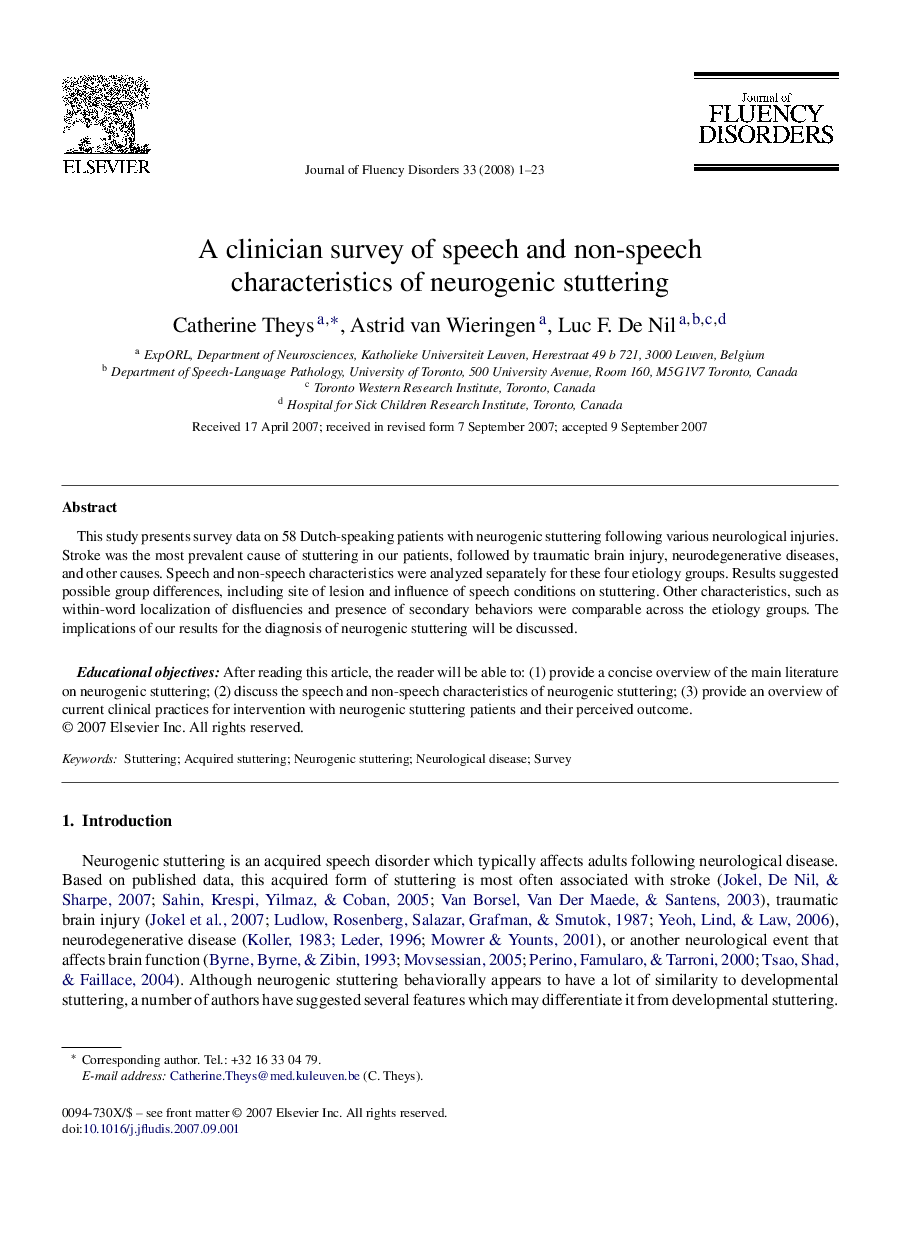| Article ID | Journal | Published Year | Pages | File Type |
|---|---|---|---|---|
| 911642 | Journal of Fluency Disorders | 2008 | 23 Pages |
This study presents survey data on 58 Dutch-speaking patients with neurogenic stuttering following various neurological injuries. Stroke was the most prevalent cause of stuttering in our patients, followed by traumatic brain injury, neurodegenerative diseases, and other causes. Speech and non-speech characteristics were analyzed separately for these four etiology groups. Results suggested possible group differences, including site of lesion and influence of speech conditions on stuttering. Other characteristics, such as within-word localization of disfluencies and presence of secondary behaviors were comparable across the etiology groups. The implications of our results for the diagnosis of neurogenic stuttering will be discussed.Educational objectives: After reading this article, the reader will be able to: (1) provide a concise overview of the main literature on neurogenic stuttering; (2) discuss the speech and non-speech characteristics of neurogenic stuttering; (3) provide an overview of current clinical practices for intervention with neurogenic stuttering patients and their perceived outcome.
